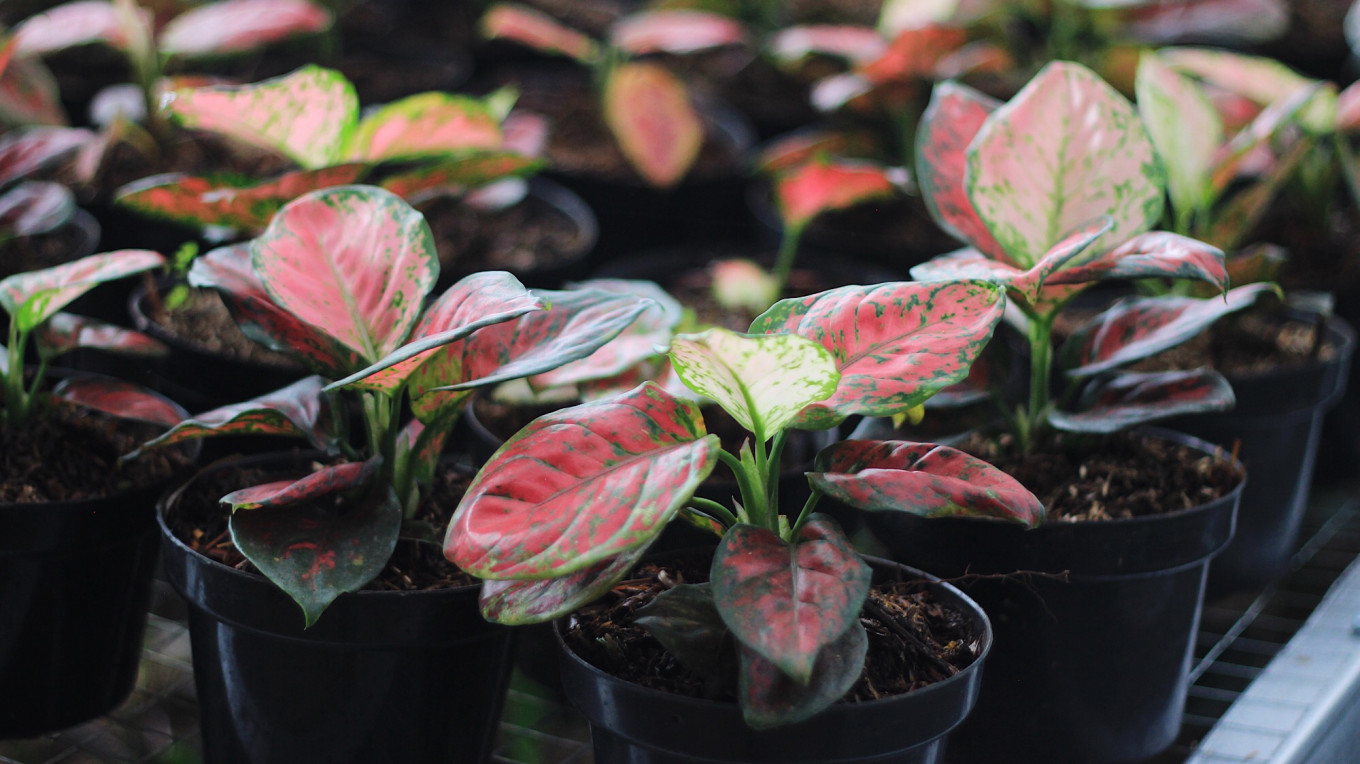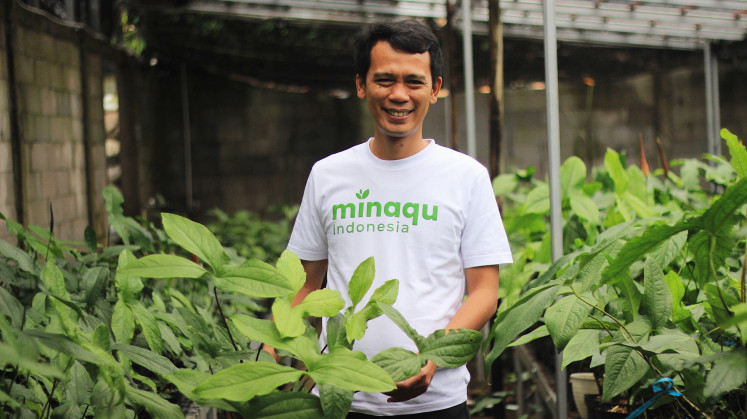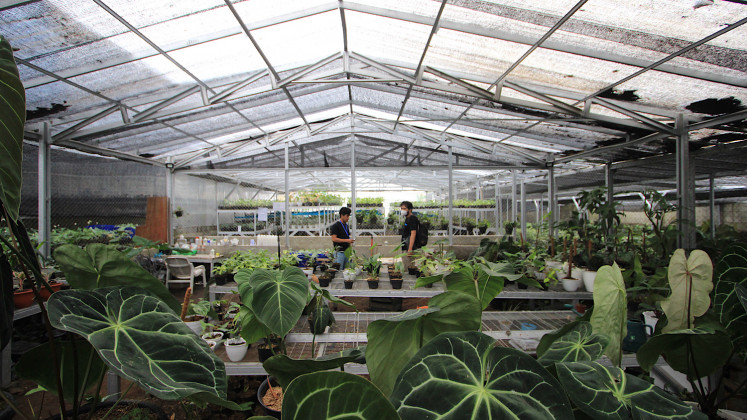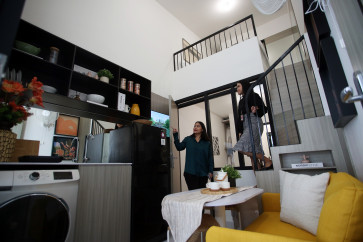Popular Reads
Top Results
Can't find what you're looking for?
View all search resultsPopular Reads
Top Results
Can't find what you're looking for?
View all search resultsDecorative plants: From stress relief to booming business
Change text size
Gift Premium Articles
to Anyone

As many use them to help relieve stress during the pandemic, decorative plants have turned into a very profitable business.
When the stay-at-home regulations were implemented at the beginning of the COVID-19 pandemic, it became a turning point for many Indonesians to explore new business opportunities – from selling homemade cooking to decorative plants.
Such is the experience of Dellya Nur Anisa, a housewife with three children, who transformed her passion for buying decorative plants into a source of income. For the 36-year-old, it all began with questions about plants from her neighbors.
“Perhaps due to the work from home policy, my neighbors sought other activities. They stopped by my house and started asking about my plant collection,” she said, adding that the tropical Calathea Lipstick, with its burgundy lips, was the star that attracted her neighbors. It is a distinct plant from Papua, with broad dark leaves and shades of purple on its veins.
The neighbors' curiosity triggered a business idea. Dellya began selling some of her collection.
Dellya took a moment to outline her business plan seriously before launching her own shop, Joeragan Kembang (Master of Flowers) in 2020. Initially, she turned the garden in her house in Serpong, Tangerang, into a shop. In October 2021, Dellya rented a vacant space not far from her house, where she built a 12-square-meter greenhouse. The green space soon attracted visitors from Tangerang, Depok and Bogor.
Dellya also relies on Instagram and e-commerce websites to sell her products.
With her online and offline shop ready, Dellya turned to plant-enthusiast communities to learn about the large variety of decorative plants and methods of caring for them.
She began networking with farmers from around Indonesia to supply plants for her shop. Her collection grew – she sells variants of popular plant types such as Aglaonema, Monstera, Anthurium and Betel. Hunting for new ornamental plants around Bogor, West Java, also became a new routine.

Seasonal market
Globally, the prospects of selling decorative plants to foreign markets also increased when the COVID-19 pandemic hit.
"As more people stayed at home, the demand for decorative plants became higher," said Ade Wardhana Winata, the CEO of Minaqu, which seals contracts to export Indonesia's decorative plants to Singapore, South Korea, Japan, Canada, Thailand, Kuwait, South Africa and European countries. "It's a big market.”
But in Indonesia, decorative plants have long been considered merely a seasonal business which, according to Ade, “makes Indonesia different from the global market”. As an exporter, he sees the global market as more stable than the Indonesian market. "This is our weakness."
Hesti Widayani, head of the Indonesian Flower Association, added that sales slightly dropped in 2021 after a significant rise at the beginning of the COVID-19 pandemic. But, she still sees brighter prospects for the future as people are becoming more aware of green-living lifestyles.
Hesti said the pandemic could be an excellent test for sellers in improving their marketing creativity.

Blessing in disguise
While admitting that sales began to drop when the government implemented restrictions on social activities, some decorative plant sellers felt that the COVID-19 pandemic had been a blessing in disguise.
Dellya experienced it firsthand as she once marked the most significant selling point at the end of 2020 by gaining revenue of Rp 35 million (US$2,440) in a month. This achievement made her believe that the market of decorative plants remains in growth.
Aldo, owner of decorative plant seller Tanamlokal, is also optimistic about the market, even beyond the pandemic. Like Dellya, he stumbled upon selling plants after uploading some of his own on his Instagram page.
He feels that beyond COVID-19, many will still yearn for the comfort of decorative plants.
"[Everyone needs] their house to be greener, especially after a stressful nine to five working day," Aldo rationalized.
Aside from selling his plants online, he also set up a store at South Jakarta’s hipster-focused M Bloc Space.
"[They] learn that each of the plants has unique and different treatment," Aldo said, noting that his sales method was to engage with customers by educating them about managing decorative plants. This personal approach, he says, has always worked and always will.
"We do not rely on business strategies during the COVID-19 pandemic situation. We only talk to our customers about how to practice eco-living in their daily lives,” Aldo said.









